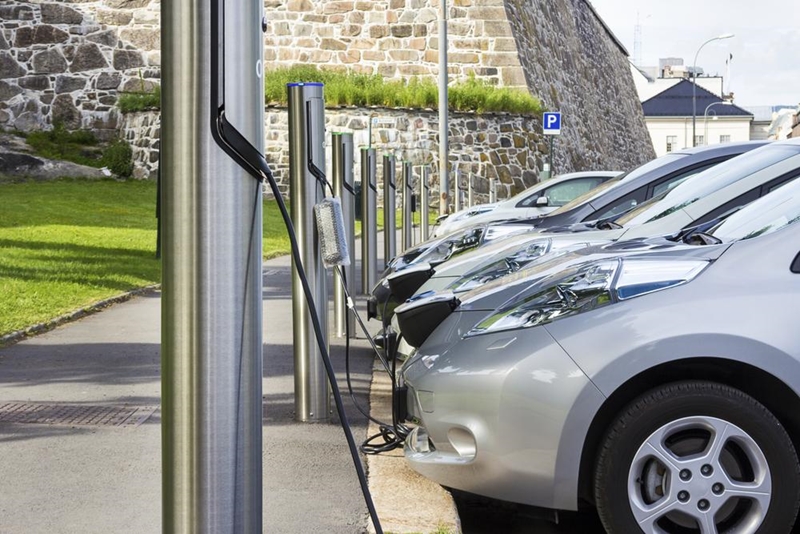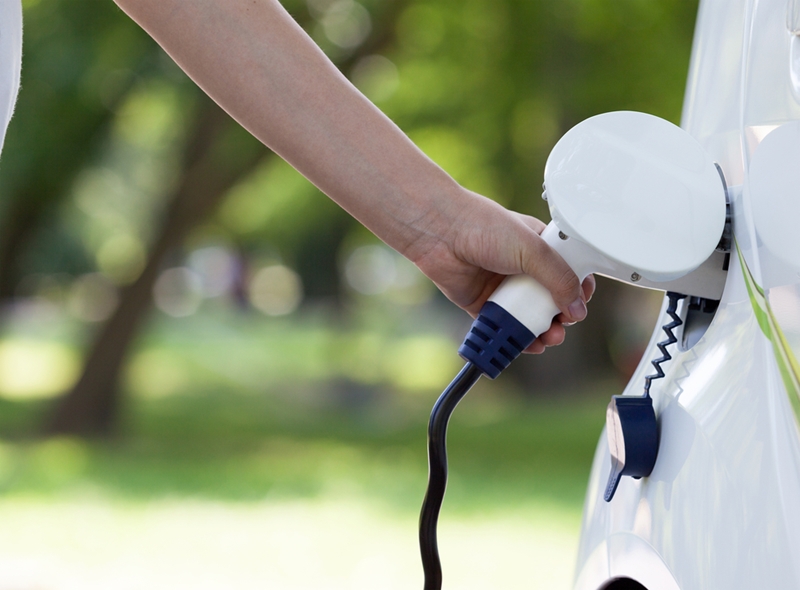
The vehicle identification number (VIN) is composed of 17 characters (digits and capital letters) that act as a unique identifier for the vehicle. A VIN displays the car's unique features, specifications and manufacturer.
The VIN can be found in a couple of places including on the car's registration label (1), on the compliance plate in the engine bay (2) or on the passenger side windshield (3), or on one of the door posts (where the door latches when it is closed) (4). See the image below:
Australians are slowly but surely getting on board with electric vehicles (EVs). According to the latest data from the Australian Bureau of Statistics, there were 23,000 electric vehicle registrations between 2020 and 2021, an increase of 63.2% over the previous year.¹
With the infrastructure to support electric vehicles on Australian roads undergoing significant updates², these cars are fast becoming the way of the future.
Given that, for now at least, the main downside to buying an electric vehicle is the cost, purchasing a used EV can be a good way to get yourself a great car at a lower price tag.
Here, we look at the benefits and drawbacks of buying a used electric car, as well as some things to look out for.
There are several reasons you may wish to buy a used electric car. Electric cars can be more environmentally friendly than their petrol or diesel-fuelled counterparts, as they are less likely to produce less toxic greenhouse gas emissions. All-electric vehicles run purely on electricity, powered by a lithium-ion battery. Electric cars produce zero emissions, making them the most eco-friendly option.
You could also opt for a hybrid car, which uses both electricity and petrol. Your car’s engine charges the battery while you’re idling, driving, or through regenerative braking. Hybrids have better fuel economy and lower emissions than a regular car, and so are also a great eco-friendly option if you’re not ready to go full-electric.³
While electric vehicles are more energy efficient, can reduce emissions, and require less maintenance, there are some downsides to consider too. Primarily, they can’t travel as far, fuelling takes longer, and they can be more expensive.⁴

Electric vehicles operate on higher efficiency and have lower running and maintenance costs.
Overall, electric cars are great for the environment and, when you purchase a used electric car, you still get this benefit – without the hefty price tag.
So, if you'd like low ongoing costs and don't want to pay a fortune upfront, buying a used car could be a great option.

Electric car models are available in Australia
According to a report by the Electric Vehicle Council, Australians now have access to 31 passenger electric vehicle models from 12 different carmakers, compared to the 28 models that were available in July 2020. Since last year, six more models under $65,000 have been launched, bringing the total to 14. By the end of 2022 it is anticipated that will be 58 models in the Australian market with a predicted 20 battery electric vehicles and seven plug-in hybrid vehicles entering the market.⁵
There are several different kinds of electric cars:
While electric vehicles do have many benefits, there are some things to be aware of before you make the decision to buy.
Filling up a standard vehicle is easy when there are petrol stations in every town. With an electric car, you'll need to plan a lot more and ensure you know how far you can drive on a single charge. However, the number of charging stations and infrastructure is rapidly increasing.
Australia’s national energy grid is undergoing several upgrades to ensure it can handle an anticipated 1.7 million electric cars on the road by 2030 as part of the federal government’s push towards net-zero emissions by 2050.
The government is also significantly boosting its investment in charging infrastructure, particularly in regional Australia, to help manage the transition towards an electrified national fleet and significantly cut pollution levels in the transport sector over the next decade.⁶ All of which is great news for used or new EV owners as well as the climate.
One final thing to be aware of when purchasing a used electric car is that there could be hidden information the seller doesn't communicate. This is a risk with every used car.
Making sure to have a trusted local mechanic or motoring authority like the NRMA, RACV or RACQ inspect the vehicle prior to buying will help minimise the risk of landing a lemon. But the best way to get peace of mind is to buy a car history report, which tells you a car's reported history to help you make a wise purchase.
1 Australian Bureau of Statistics. Motor Vehicle Census, Australia, 31 Jan 2021.
2 The Guardian Australia. Grid upgrades, infrastructure rollout planned to handle electric car surge. Published November 8, 2021.
3 Gumtree. Your Complete Guide to Electric and Hybrid Cars. June 7, 2021.
4 EnergySage. Pros and Cons of Electric Vehicles. Updated 31 January 2022.
5 Electric Vehicles Council. State of Electric Vehicles Market. August 2021.
6 The Guardian Australia. Grid upgrades, infrastructure rollout planned to handle electric car surge. Published November 8, 2021.